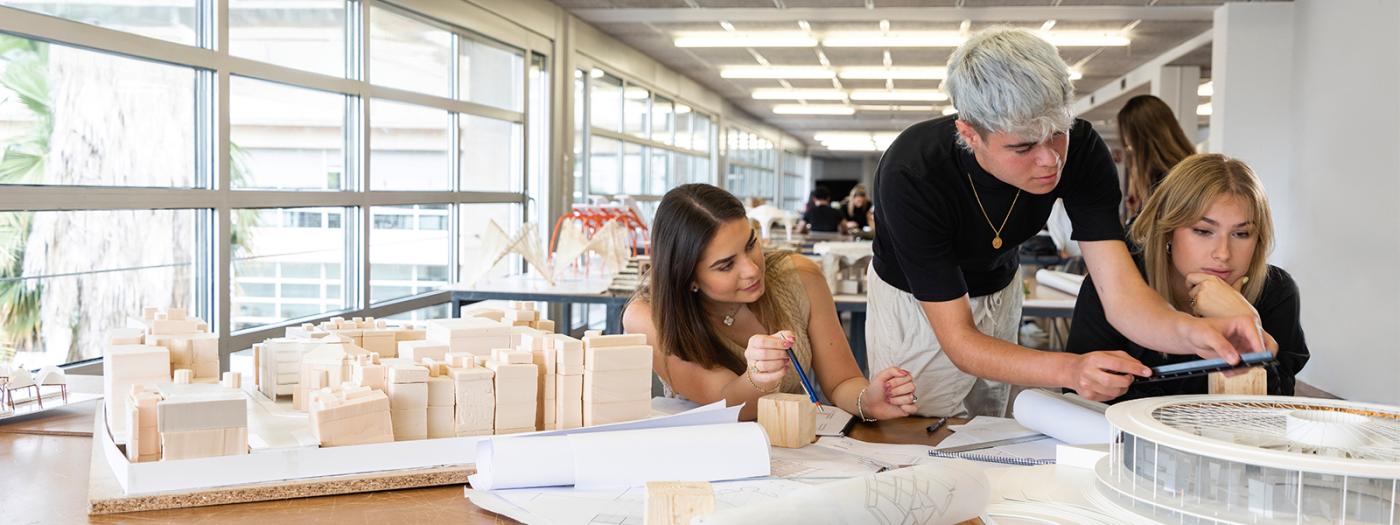· Understand the interrelationships between architecture, art, design, communication, and media in the contemporary world.
· Acquire the ability to integrate knowledge from various subjects and disciplines into the processes of creation and thinking.
· Contribute to forming a broad interdisciplinary knowledge base that continues to develop in other courses in the upper years.
· Exercise the capacity for expression and communication of ideas by combining traditional and digital media.
· Express and communicate ideas and projects effectively, through the consistent use of information and communication technologies, in combination with other techniques.
· Develop the ability to learn and work autonomously.
· Develop the ability to work creatively individually and in collaboration, using traditional and digital technologies.
· TEXT. Fundamental principles of modern architecture and art and their relationship with contemporary architecture. Fundamentals of graphic design and typography. Fundamentals of linguistics, semiotics, and visual communication. Interactive interface design. Publication of multimedia documents on the web (blogs, digital animations).
· FIGURE. Figuration and abstraction in modern art. Abstract and concrete art. Fundamentals of color theory. Principles of form and color composition. Processes of form generation. Psychology of visual perception. Painting and music: synesthesia.
Problem-solving and exercise classes
Laboratory practices
Seminars
Self-paced learning
Project-based learning
Flipped classroom
Gamification
Peer instruction
Real-world events
Challenge-based learning
Case method
Lectures
Exams
Assignments
Internal/External Reports
Exercises, problems, practices
Projects
Group/Individual Presentations
Self-evaluation
Class participation/attendance
Critiques by a panel/jury
